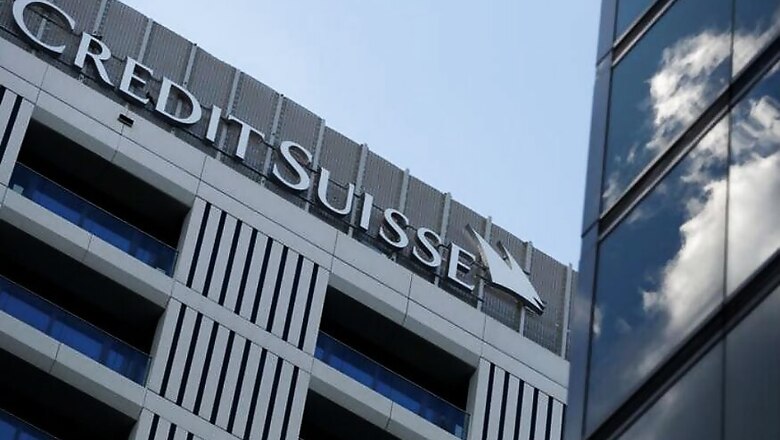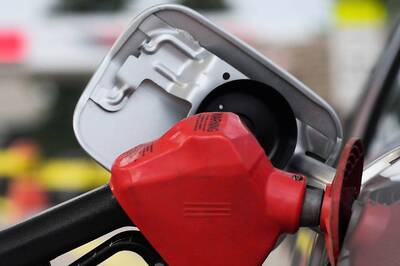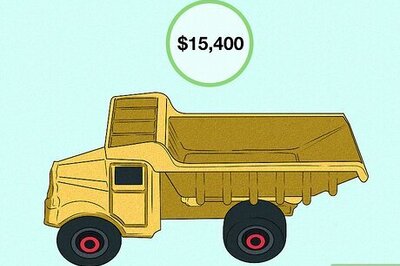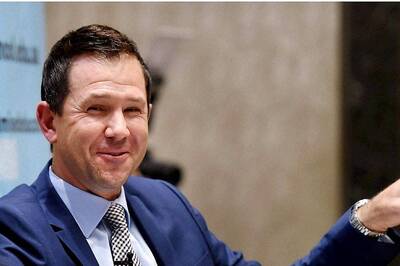
views
Amsterdam/Zurich: Swiss bank Credit Suisse has been dragged into yet more tax evasion and money laundering investigations, after a tip-off to Dutch prosecutors about tens of thousands of suspect accounts triggered raids in five countries.
Coordinated raids began on Thursday in the Netherlands, Britain, Germany, France and Australia, the Dutch office for financial crimes prosecution (FIOD) said on Friday, with two arrests confirmed so far.
The Dutch are "investigating dozens of people who are suspected of tax fraud and money laundering", the prosecutors said, adding that suspects had deposited money in a Swiss bank without disclosing that to authorities.
Prosecutors in the German city of Cologne said they were also working with the Dutch. "We have launched an investigation against clients of a bank," a spokesman said.
None of the authorities disclosed the name of the bank involved. However, Credit Suisse, Switzerland's second-biggest bank, said local authorities had visited its offices in Amsterdam, London and Paris "concerning client tax matters" and it was cooperating.
It said later it had launched an internal probe. "The investigation will be executed by compliance, it will not be executed by the business," Iqbal Khan, who is responsible for Credit Suisse's private banking operations outside Switzerland and Asia Pacific, told Reuters.
"If any individuals are implicated or have violated against these processes or procedures or policies that are in place then we will identify that very quickly."
The Dutch FIOD seized administrative records as well as the contents of bank accounts, real estate, jewellery, a luxury car, expensive paintings and a gold bar from houses in four Dutch towns and cities. The FIOD tweeted a photo of some of the seized assets.
The people arrested, one in The Hague and one in the town of Hoofddorp, were not identified.
The actions angered Switzerland's Office of the Attorney General, which said it was "disconcerted" by the way Dutch authorities had handled the matter and would demand an explanation.
Dutch prosecutors responded that Swiss authorities had been left out of the investigation because none of the suspects were Swiss — they were just linked to secret Swiss bank accounts.
"If the Swiss authorities wish to receive information on the investigation, we, the other countries involved and Eurojust, are always willing to discuss (that) with them," the FIOD said in a statement.
Eurojust, the European Union agency that coordinates cross-border prosecutions, said the investigation had begun in 2016, and representatives from the countries involved — Switzerland not among them — had held three preparatory meetings to share information before Thursday's raids.
Prosecutors "analysed a huge amount of data," Eurojust said, looking for "individuals and groups suspected of tax fraud and money laundering."
The investigation uncovered "undeclared assets hidden within offshore accounts and policies... (worth) millions of euros."
Credit Suisse shares fell 1.2 percent, underperforming the wider European banking sector index which rose 0.1 percent on Friday.
OLD WOUNDS
For Zurich-based Credit Suisse, the case reopens the thorny issue of tax evasion which has dogged Swiss banks for years as wealthy individuals around the world have used the country's strict bank secrecy laws to hide cash from the taxman.
The bank said in December this process had been completed for Europe.
Switzerland is also among the countries that have signed up to a global initiative led by the Organisation for Economic Co-operation and Development. Under the OECD's Automatic Exchange of Information, banks pass on information to local tax agencies, which then share it with foreign counterparts.
Switzerland began collecting data at the start of the year and will exchange information from 2018.
The Dutch FIOD said the coordinated raids were prompted by a tip-off about 55,000 suspect accounts, and it had passed information to the other countries about the accounts.
Spokeswoman Wietske Vissers said the investigation would "continue for days and weeks" across the various countries. The Netherlands is investing 3,800 Dutch leads. French authorities said they had 25 agents working on the case.
Credit Suisse's Khan said the 55,000 was "not a number that I can reconcile because as of today, in International Wealth Management in Europe, the total number of accounts is lower than 55,000".
Australia's minister for revenue and financial services, Kelly O'Dwyer, said the country's financial crime investigator was looking at 340 Australians linked to Swiss bank accounts, which she said were only identified by number.
"The fact that these accounts are unnamed," O’Dwyer said, "means that by their very nature they are likely to have been established to hide the identity of the owner."
















Comments
0 comment